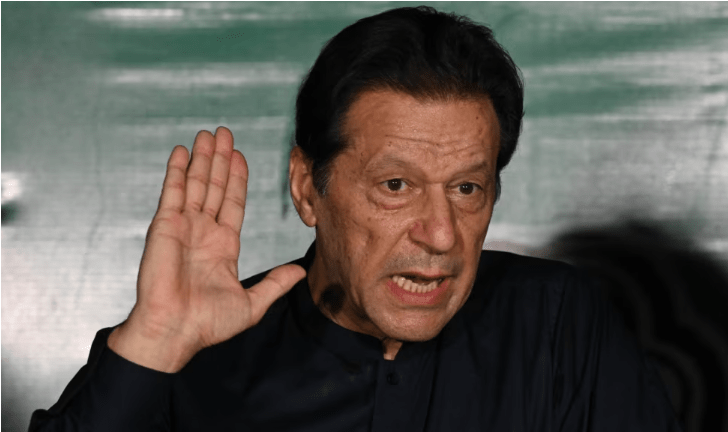
A group of independent experts from the United Nations demanded Monday the immediate and unconditional release of Pakistan’s former Prime Minister Imran Khan, asserting that his imprisonment is arbitrary and violates international laws.
The Geneva-based Working Group on Arbitrary Detention, which reports to the U.N. Human Rights Council, published the opinion, saying that Pakistani authorities have “no legal basis” for Khan’s detention.
The five-member group pointed out that the imprisonment of the 71-year-old former Pakistani leader violated at least a dozen articles of the Universal Declaration of Human Rights and the International Covenant on Civil and Political Rights.
“The Working Group requests the government of Pakistan to take the steps necessary to remedy the situation of Mr. Khan without delay and bring it into conformity with the relevant international norms,” it said.
Khan was convicted and sentenced to three years in August 2023 for alleged corrupt practices after a trial that he and independent legal experts declared replete with due process violations. Three days later, the Election Commission of Pakistan disqualified him from running for office for five years.
The conviction was related to his alleged failure to report and disclose gifts received during his time as prime minister in the so-called Toshakhana case. Toshakhana — which literally means “treasure house” — is a government department where gifts received by Pakistani leaders during foreign state visits are stored and displayed.
The U.N. group determined that the prosecution was not grounded in law from the outset, and that Khan’s unlawful detention “appears to have been intended to disqualify him from running for political office.”
The opinion was dated March 25 but made public only Monday. The experts concluded that “the appropriate remedy would be to release Mr. Khan immediately and accord him an enforceable right to compensation and other reparations.”
Khan, a philanthropist, politician and former cricket star, has been in jail since last August. He served as the prime minister of Pakistan from 2018 to April 2022, when an opposition-led parliamentary no-confidence vote ousted him from power.
Pakistani authorities, allegedly acting on behalf of the country’s powerful military, have filed numerous lawsuits against the ousted leader, accusing him of murder, sedition, graft and other crimes.
Khan denies the allegations as frivolous and an attempt to keep him from power. He is the head of the Pakistan Tehreek-e-Insaf, or PTI, rated as the most popular political party in the South Asian nation of about 245 million people.
The experts noted that they had reached out to the Pakistani government through regular communication procedures to clarify the legal provisions justifying Khan’s detention and its compatibility with the state’s obligations under relevant international treaties.
“The working group regrets that it did not receive a response from the government to the present communication,” they stated.
Pakistani officials did not immediately respond to the U.N. findings.
The U.N. panel has the authority to investigate and issue legal opinions about alleged cases of arbitrarily imposed deprivation of liberty. Its opinions are not legally binding, but they hold significant reputational weight.
Khan’s party hailed the group’s conclusions and renewed its demand for Khan’s immediate release.
“The international silence has finally broken on the illegal incarceration of Imran Khan,” said Zulfi Bukhari, adviser to Khan and a PTI spokesperson.
“The international condemnation of the manner in which the government of Pakistan illegally stripped Mr. Khan of his freedom and rights has echoed from the U.S. to the U.N. … and now the Working Group [is] shining a light on it as a blatant effort to interfere with his intentions to run for political office,” Bukhari stated.
In the lead-up to Pakistan’s February 2024 general elections, PTI candidates were arrested, tortured and intimidated into leaving the party. Authorities blocked and disrupted PTI campaign rallies, and the party was deprived of its iconic cricket bat symbol in a controversial move, forcing its candidates to run as independents.
Just days before the February 8 election, Khan was convicted in three more cases and sentenced to an additional 10 years, 14 years and seven years, respectively. He blamed the military for the crackdown on his party and vote manipulations and mobile phone and internet shutdowns on election day — charges the election commission and the military denied.
Despite the restrictions, independents aligned with PTI won the most directly elected seats, 92, but were short of a simple majority needed to form the government.
Last week, the U.S. House of Representatives voted 368-7 to urge a “full and independent investigation of claims of interference or irregularities” in Pakistan’s election.
Islamabad rejected the probe call as an interference in the country’s internal affairs, saying the U.S. congressional resolution stemmed from “an incomplete understanding of the political situation and electoral process” in Pakistan






